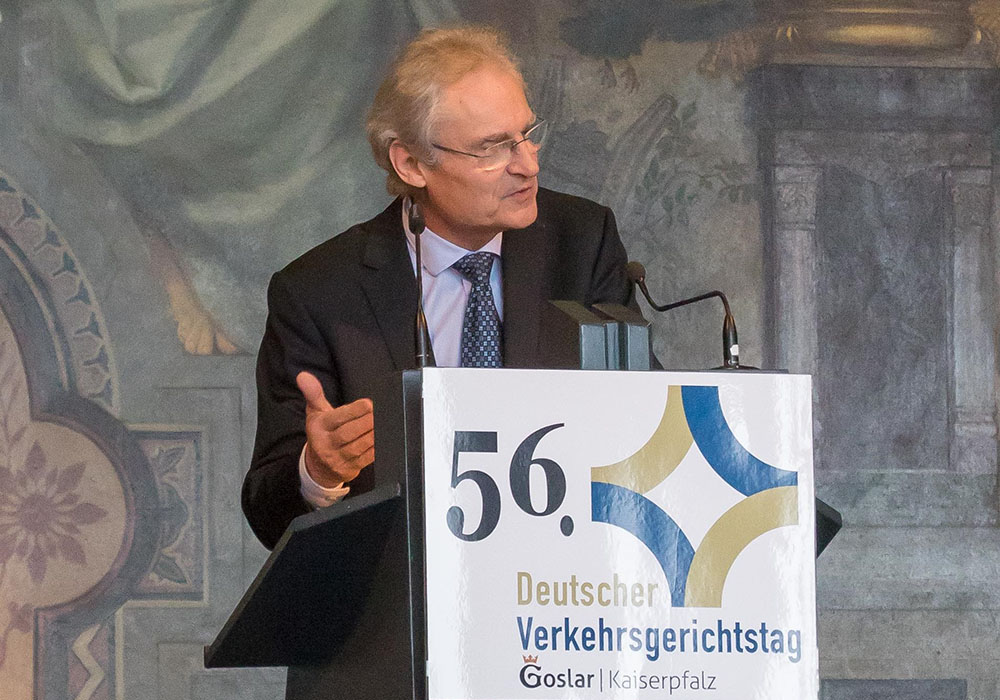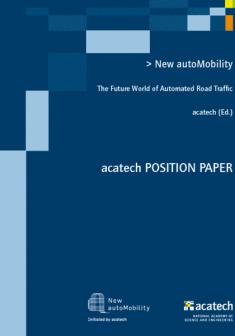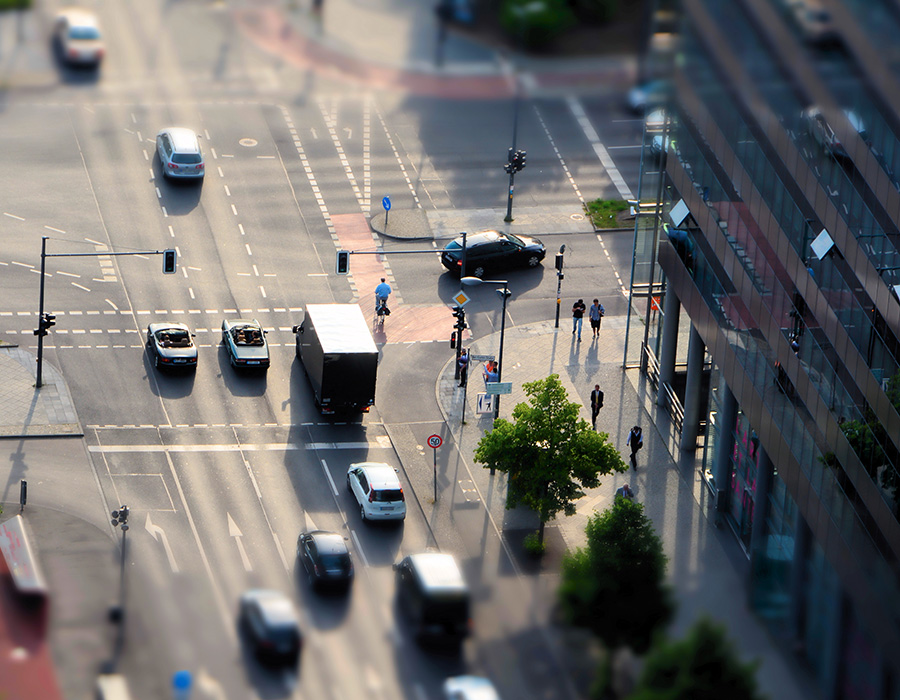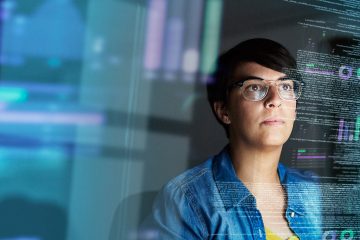Autonomous Systems: driving the mobility transition

Goslar, 25 January 2018
On 25 January, acatech President Henning Kagermann gave a speech at the 56th conference of the German Council on Jurisdiction in Traffic (Deutscher Verkehrsgerichtstag) in Goslar on autonomous systems and their impact on our transport system, economy and society. The convergence of the physical and virtual worlds is generating an unprecedented quantity of data that can be analysed using artificial intelligence. This is creating opportunities for new business models in many areas, including the mobility sector. At the same time, however, we need to engage in a broad public dialogue about the safety and security of autonomous systems, their impact in the workplace, and the need to re-examine regulatory issues such as liability.
Legal experts met with representatives of science, government and civil society at the 56th conference of the German Council on Jurisdiction in Traffic in Goslar to discuss current developments and challenges in German traffic law. This year’s event focused on the twin technological innovations of automated driving and digitalisation in the shipping industry. The fact that both of these phenomena are fundamentally transforming transport makes it necessary to review the legal situation, especially as regards data security, liability and the risks of connected and automated smart mobility applications. In his speech, acatech President Henning Kagermann outlined the new challenges that accompany autonomous systems and their importance to German industry and society as a whole.
Autonomous systems are machines or software systems capable of achieving a defined goal on their own, without needing every step in the process to be pre-programmed. Unlike automated systems, which follow a fixed sequence of actions, they are highly adaptable and able to respond to unforeseen changes in their environment. They can do this because they have access to a huge quantity of data from the highly digitalised and connected machines and products that characterise the world of Industrie 4.0.
Kagermann described how Industrie 4.0 is already making it possible to produce customised products at mass-produced prices, as well as enabling improved resource and energy efficiency and a better work-life balance for employees. New business models can also be established by analysing the data collected by intelligent machines. This data can be used to provide “smart services” – customised solutions that reflect users’ individual habits, needs and preferences. Kagermann emphasised that innovations are always part of the solution. These innovative technologies offer huge opportunities for German industry, with the potential to add an extra one trillion US dollars of value between now and 2035.
The mobility transition offers numerous opportunities for social improvements
The mobility market is changing rapidly. Driven by electrification, automation and connectivity, the mobility transition promises to make a major contribution both to combatting climate change and to road safety. In addition to improving safety, enhancing quality of life and promoting social inclusion, it will increase resource efficiency through better utilisation of transport capacity. In the words of Henning Kagermann: “Automated private transport will combine with public transport to create a large, new and highly competitive market for customised public transport services. Driverless public transport shuttles will operate as affordable taxis or flexible ridesharing services. They will bring the supermarket to your doorstep, facilitate social inclusion for the elderly and people with disabilities, and help to revitalise our rural areas.”
Kagermann argued that with over 3,000 deaths a year on Germany’s roads, it is unquestionably worth pursuing the vision of largely driverless transport based on autonomous systems, since this would significantly reduce the number of traffic accidents. Nevertheless, he recognised that because they act autonomously and have not had every individual step pre-programmed into them, the behaviour of autonomous systems is not completely predictable. This is an important consideration in liability claims, for example. It is therefore important to remember that the use of fully autonomous systems will always require people to give up some of their own decision-making autonomy. However, many of the social challenges and ethical questions will only be framed and resolved over the course of time, through a process in which society modifies technology which in turn then impacts back on society.
Kagermann explained that a dialogue with the public is therefore critical to resolving these social, ethical and legal questions. The Plattform Lernende Systeme launched by the BMBF in 2017 and coordinated by acatech promotes just such a dialogue. The platform brings together experts from science and industry to develop options and recommendations for the responsible use of autonomous systems.
Further information
Platform Artificial Intelligence
National Platform for Electric Mobility





